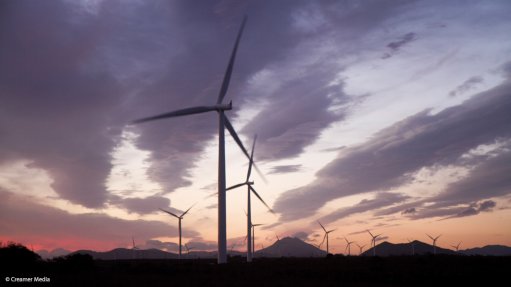
Photo by: Duane Daws
North African State Djibouti has the ability to attain its goal of sourcing 100% of its energy from renewables by 2020, a report released on Monday by the International Renewable Energy Agency (Irena) has revealed.
The ‘Djibouti Renewables Readiness Assessment (RRA)’ found that the transition could be enabled through the exploitation of geothermal, wind and solar resources, as well as through the strengthening of the existing interconnection with the Ethiopian grid, which currently delivered 65% of Djibouti’s electricity needs.
“The development of local renewable resources would provide an answer for Djibouti’s energy access, energy security and employment needs,” commented Irena director-general Adnan Amin.
“The falling costs of renewable energy offer an opportunity for Djibouti to rethink its energy strategy, develop policies and build institutions that would create jobs, bring power to those currently without and deliver more reliable electricity services, all through clean, sustainable energy.”
According to the agency, roughly 55% of Djibouti’s population did not currently have access to electricity, while the country also remained heavily dependent on imported fossil fuels and power, which exposed it to fluctuating oil prices, blackouts and other service disruptions.
Greenhouse-gas emissions had also rapidly increased in the last 20 years owing mainly to the use of fossil fuels in the electricity mix, while Djibouti’s unemployment rate currently stood at 60%.
The report further highlighted that the renewable-energy sector employed more people on a megawatt-hour basis than the conventional energy sector and that offgrid renewable power could meet demand in unserved rural areas and replace existing diesel systems, reducing carbon emissions and improving air quality.
Irena stated that the RRA offered a holistic evaluation of conditions for renewable-energy deployment in Djibouti and recommended that the country undertake a number of concrete measures to support the implementation of renewable energy, including developing a long-term energy plan; strengthening the legislative and regulatory framework; developing a clear rural electrification strategy; and providing financial support for small and medium-sized solar photovoltaic enterprises.
Since 2011, more than 20 countries in Africa, the Middle East, Latin America, the Caribbean, Asia and the Pacific Islands have undertaken the RRA process with Irena to accelerate the deployment of renewable technologies domestically, the organisation stated.